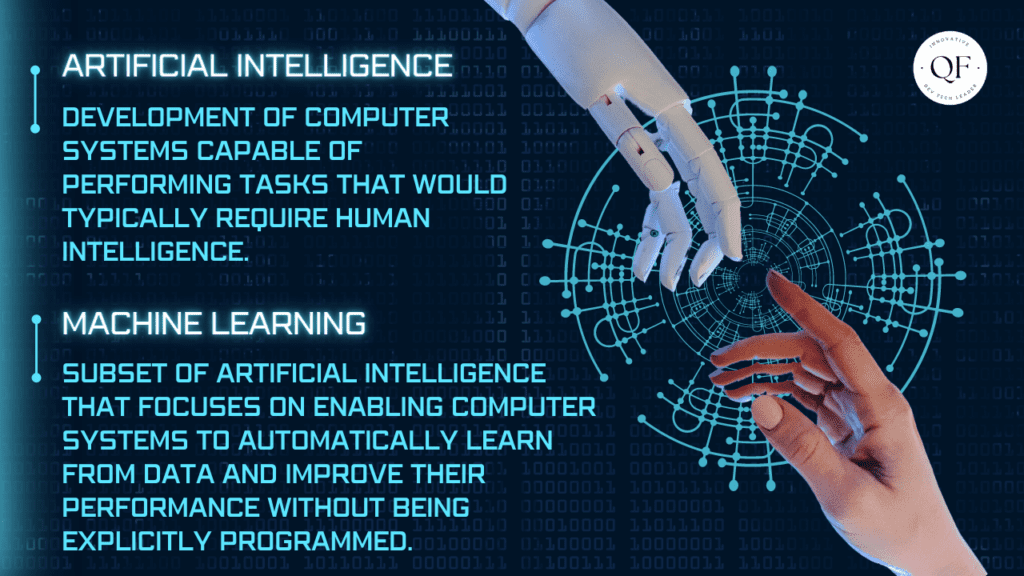
Artificial Intelligence
The theory and development of Computer Systems able to perform tasks requires normally requiring Human Intelligence.
@coursera
Machine Learning
ML gives computers ability to learn without Explicit Programming.
@coursera
Few Key Differences between AI and ML:
Scope: Artificial intelligence (AI) encompasses a broad range of technologies that mimic human intelligence, while machine learning (ML) is a specific subset of AI that focuses on data-driven learning and improving performance. .
Approach: AI uses different approaches such as rule-based systems, expert systems, and statistical approaches, while ML mainly relies on statistical techniques and algorithms to enable machines to learn from data.
Programming: AI often requires complex programming and explicit instructions for tasks, while ML algorithms autonomously learn patterns from data, reducing the need for explicit programming.
Data dependence: AI systems can operate without extensive data input but may require explicit programming and rules, while ML relies heavily on data to learn and improve performance, creating data quality and quantity matter.
Flexibility: AI systems exhibit flexibility when performing tasks such as reasoning, problem solving, and decision-making, while ML algorithms excel at specific trained tasks but may lack the same level of overall flexibility.

